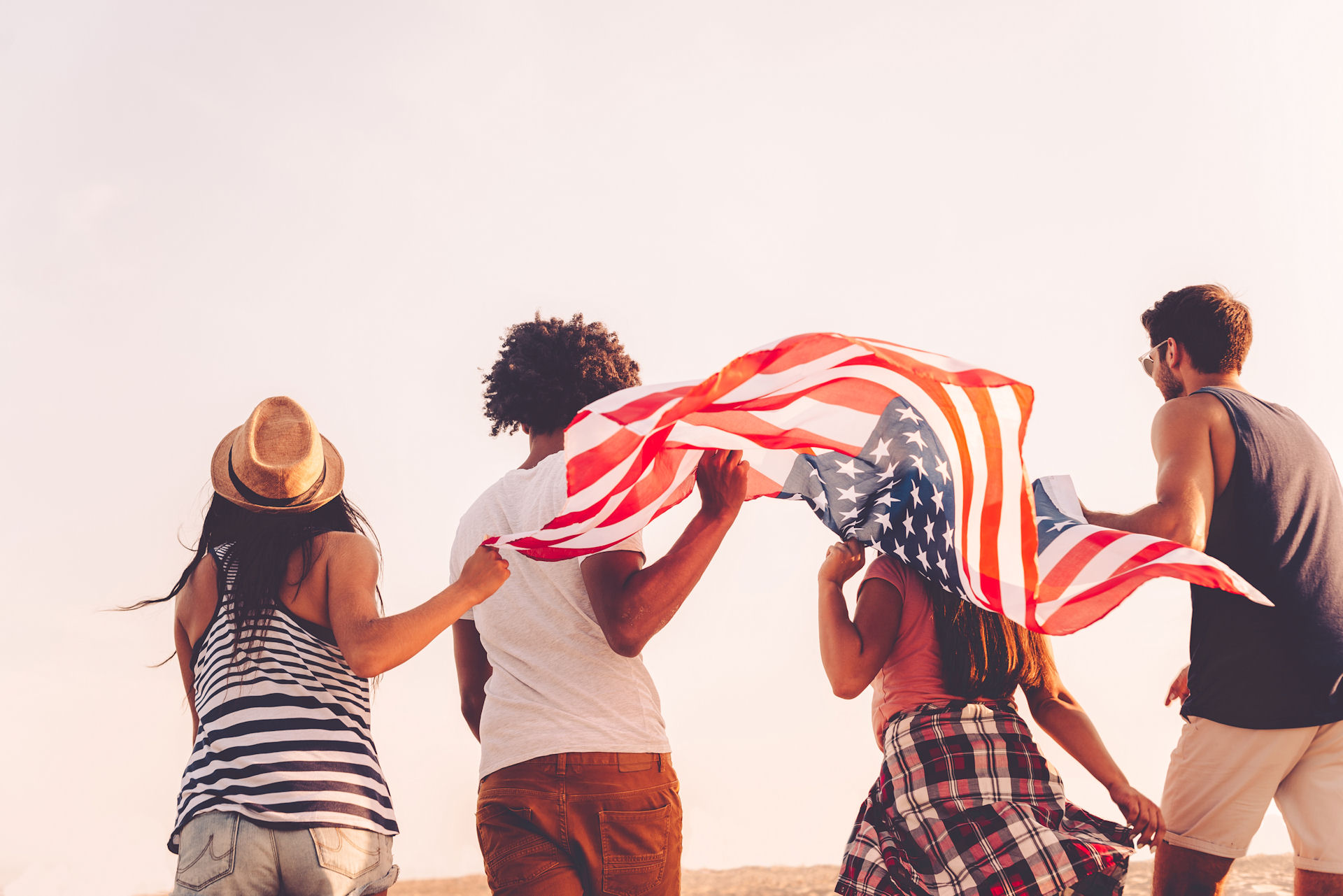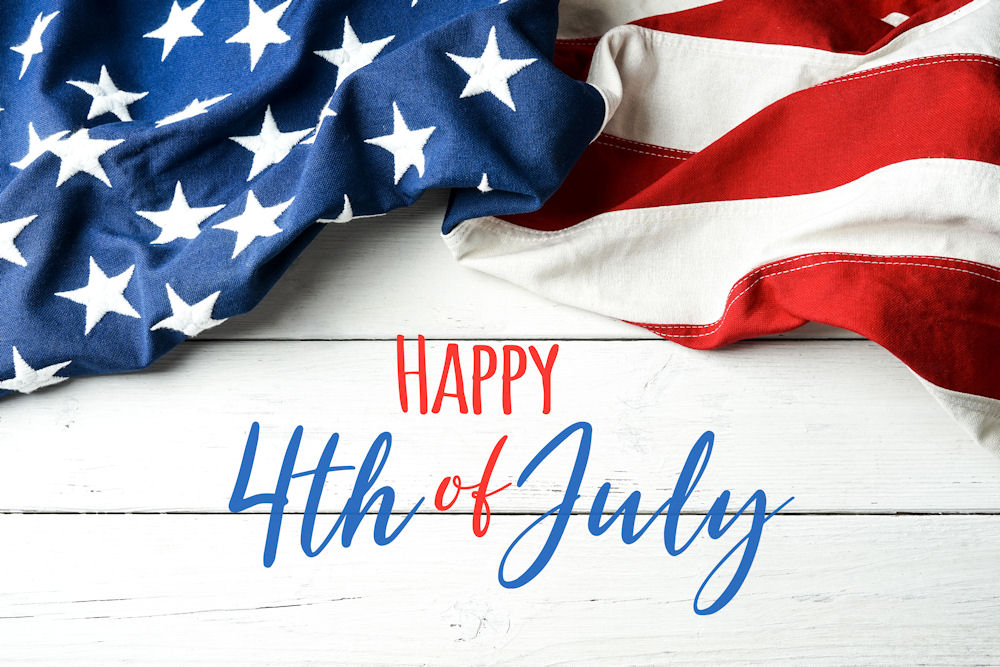The 4th of July is a day full of friends, family, food, and celebration. But for those in recovery, this day can be challenging. Like many social holidays, July 4th typically involves drinking alcohol, which can challenge sobriety.
Whether this is your first sober 4th of July or you are a recovery veteran, this day can be challenging to your sobriety. It’s normal to feel afraid about maintaining sobriety during the 4th of July, so don’t hesitate to seek support if you feel this way.
Why Independence Day Can Be Difficult for Those in Recovery
Independence Day is often spent enjoying the outdoors with friends and family. Formany people, the fun involves alcohol. Whether at a BBQ or the beach, you may end up in a situation where alcohol is available. This holiday can be extremely difficult for people in early recovery or someone struggling with staying sober. Since holidays have the potential to trigger a relapse, it is important to have a plan if you are tempted to drink.
For example, if you are new to recovery, some friends and family may not know you are celebrating a sober 4th of July. As a result, you may be in a position where they offer you a drink. While this can be triggering, you are in control and can say no.
Remember, you can choose not to partake in alcohol even if others around you are drinking. Just because you say no to drinking alcohol doesn’t mean you will have less fun. You may have more fun without it. If you are struggling with cravings or triggers, seeking support from alcohol rehab can provide the necessary tools and resources to stay sober during challenging times like the 4th of July.
Sobriety Celebration Ideas: Tips For Enjoying Independence Day
Being sober doesn’t mean you can’t have fun. And a sober 4th of July can be just as fun as one with alcohol. July 4th festivities often include social gatherings and celebrations where alcohol might be present, which can present unique challenges for those in recovery.
Being prepared with a plan to handle triggers during the holiday is important. Whether you throw a party free of alcohol and drugs or believe you can be at a party with alcohol and not drink, the following sobriety celebration ideas can help you have a sober 4th of July.
Kickstart your day by attending a recovery meeting before the festivities begin. Starting with a supportive community and fellowship will strengthen your recovery and provide ongoing support as the day progresses.
Spend the holiday with people who understand and respect your recovery journey, especially supportive family members who play a crucial role in maintaining sobriety. This reduces the chances of encountering triggering situations, and supportive family members can also participate in sober activities with you.
Use the 4th of July to show off your culinary skills with a BBQ or similar spread. Get creative with red, white, and blue treats and summer salads. Focusing on delicious food will make it easier to pass up alcohol or other substances while having something enjoyable to look forward to. Bringing your favorite soda can also help you enjoy the celebration without feeling left out
Wherever you decide to go, make sure you have your transportation. This gives you the freedom to leave when you want and not have to stay in any space or around anyone who pressures you to drink.
It’s wise to have a plan in place in case you become triggered or overwhelmed. You can excuse yourself by saying you’re not feeling well or have another event to attend. If you choose to leave, consider asking a friend to accompany you so that you won’t be alone the rest of the day. You can also ask a trusted friend to observe your behavior during the event and provide support if they think you might need help.
Friends that are also in recovery from addiction might be concerned about staying sober during the lively Fourth of July parties. Throwing your own sober event is a great way to take control of your celebration. By organizing your sober gathering, you provide them with a safe environment to celebrate while also retaining control over the day’s events.
Ensure your phone is charged, have the phone numbers of several people you can call if needed, and make sure you have a sober friend available to support you. This way, you’ll have a specific person (such as a sponsor, therapist, or sober friend) to contact for support if you require help.
Despite all the precautions and sober celebrations available, facing challenges is normal. If you’re struggling or feeling triggered, talk to someone you trust. Don’t keep these feelings to yourself. Reach out to your sponsor, text a supportive friend, or make plans to attend a meeting. These connections can help you remember why you chose sobriety in the first place.
Starting your recovery journey after being trapped in the cycle of addiction is a significant accomplishment. When you’re feeling down and feel tempted to use addictive substances, a great way to motivate yourself is to remember why you started in the first place. Reflecting on these reasons can help reignite your determination and remind you why you’re committed to a life without addiction.
In addition to recalling the reasons that led you to recovery, it’s crucial to remind yourself of the positive impact it can have (and already has had) on your overall life. It’s natural to feel discouraged during the early stages of recovery when encountering obstacles.
However, understanding the benefits of recovery (such as a longer and healthier life and the pursuit of happiness) can be a powerful motivation to continue and maintain sobriety. By keeping these rewards in mind, you can find the strength and determination to continue your journey.
If you’re feeling unmotivated, assess whether you’ve been prioritizing self-care as much as you need. Aim for seven to nine hours of sleep each night to support your overall health and recovery. Choose nutritious foods like protein-rich snacks, fresh fruits, vegetables, and healthy fats to give your body essential nutrients. Drink enough water to stay hydrated and avoid drowsiness, impacting your energy levels and overall vitality. Avoid isolation by connecting with others who support your recovery journey. Building meaningful relationships can boost your mood and provide a sense of belonging.
When you feel overwhelmed by negativity and uncertainty, it’s easy to overlook the positive aspects of your life. However, by acknowledging and appreciating the things you have, you can remind yourself that goodness exists, and more good things are on the horizon.
One effective way to foster gratitude is by journaling or mentally listing things for which you’re grateful before bedtime. Remember, giving up won’t solve your problems or bring you the benefits that recovery can provide.
Isolation contributes to feelings of depression, anxiety, and self-doubt. This can trap you in a continuous loop of negative thinking. But, when you seek support from others, you open yourself up to valuable advice and fresh perspectives that you may not have considered.
Reaching out also enables you to connect with the recovery community. This allows you to build a strong sober support network that assists during hard times. Hearing success stories from those who have faced similar struggles and triumphed can be incredibly comforting.
The recovery journey can feel overwhelming, especially if you are just beginning. The initial challenges may lead to self-doubt and questioning your ability to succeed. However, one effective way to overcome this feeling is by setting specific and realistic goals. For instance, an attainable goal in early recovery could be to complete the treatment program offered at a rehab center.
Take time to reflect on what you want to achieve and then develop a plan to make it happen. By setting achievable goals and planning accordingly, you can regain confidence in your ability to recover.
Find Support for Sober Holidays
July 4th and other holidays can be difficult for those trying to stay sober. But you don’t have to face them alone. At Eagle Creek Ranch Recovery, we offer a variety of alcohol addiction treatment programs to support you in having a sober 4th of July and other holidays.
Depending on your addiction and personal needs, we offer the following treatment programs:
Learn More About Alcohol Rehab at Eagle Creek Ranch Recovery
If you or a loved one is struggling with alcohol abuse or alcohol use disorder, you are not alone. Alcohol is one of the hardest addictions to beat, but we’re here to help you at Eagle Creek Ranch Recovery. Contact us to find out how our treatment programs can support you all year

Clinical Director
Kendall Maloof is the clinical director at Eagle Creek Ranch Recovery. She is a licensed marriage and family therapist and has held multiple leadership roles before settling here at Eagle Creek. Kendall received her master’s degree in marriage and family therapy from the Chicago School of Professional Psychology in 2016. Her career in mental and behavioral health began in 2014 when she took up internships in both the nonprofit and for profit sectors. She interned at multiple reputable companies, such as The Living Success Center and 449 Recovery in California.
In 2019, Kendall became the clinical director of Sunsets Recovery for Woman, a dual diagnosis program in southern California. Kendall is a natural leader. She has an incredible ability to problem solve and stay calm in any situation. Kendall never fails to show up when she is needed, and her calm demeanor makes her team and clients feel at ease. Eagle Creek Ranch Recovery is proud to have Kendall as our clinical director.





